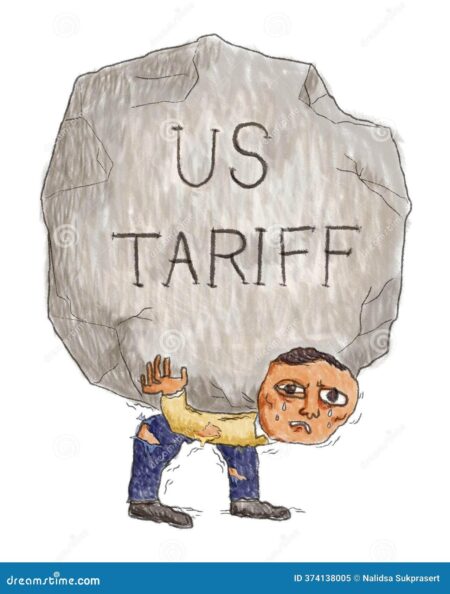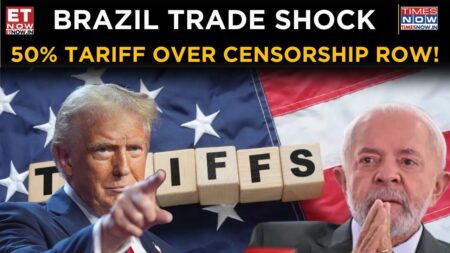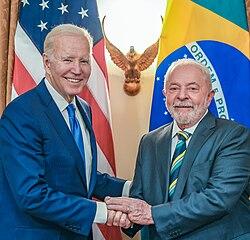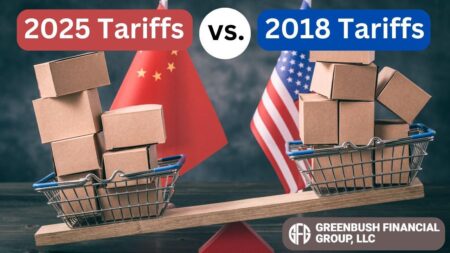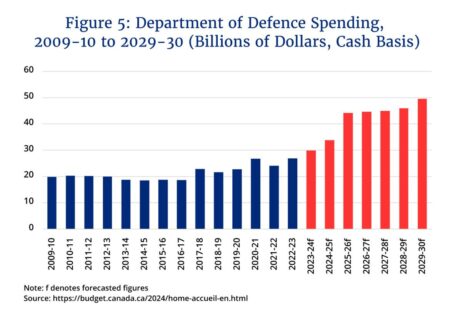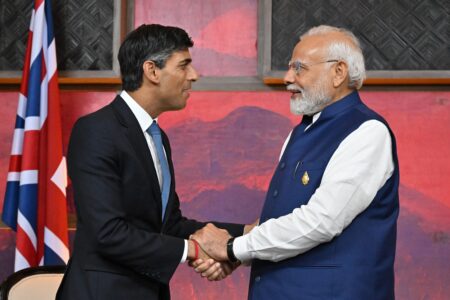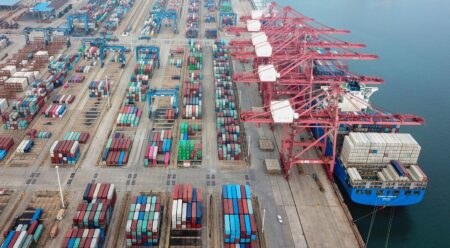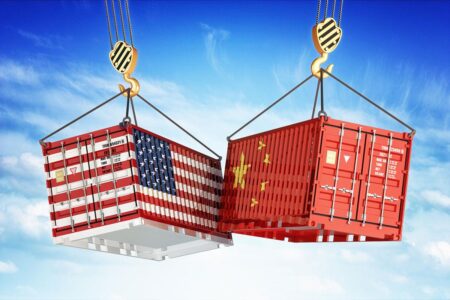Tariff anxiety is sweeping across Japan, the Bank of Japan’s latest report reveals. Rising trade tensions and impending tariff increases are rattling businesses, shaking economic confidence, and forcing exporters to proceed with caution
Browsing: Trade Tensions
Economists are raising urgent concerns about Trump’s new tariff on Brazil, warning it sets a “scary precedent” despite the U.S. enjoying a trade surplus with the country. This bold action ignites fears of escalating trade conflicts and sparks anxiety over potential retaliatory measures
US-Brazil tensions are escalating as former US President Trump throws his full support behind Bolsonaro and threatens to impose new trade tariffs, igniting concerns over the future of bilateral relations and economic stability, BNamericas reports
Former President Trump is turning up the heat on trade by threatening an additional 10% tariff on BRICS nations, labeling them as “anti-American,” Fox Business reports. This daring move escalates the already fierce trade battles amid ongoing geopolitical turmoil
Canada is facing mounting economic challenges as a trade dispute with the U.S. escalates, throwing exports and supply chains into turmoil. Key industries such as agriculture and manufacturing are feeling the heat, battling soaring tariffs and an increasingly uncertain market landscape
Canada has announced an ambitious surge in defence spending to meet NATO targets, all while navigating ongoing tariff tensions. Finance Minister Carney emphasized this bold commitment as a powerful promise to strengthen alliance ties and safeguard economic stability
Chip stocks tumbled sharply after reports surfaced that the U.S. could revoke export waivers for Taiwan Semiconductor and other industry giants, igniting fears of supply chain disruptions and escalating trade tensions
Trump secures a landmark win with a groundbreaking UK trade deal as EU negotiations hit a standstill. Meanwhile, Japan intensifies its stance in escalating tariff battles, fueling rising global trade tensions
Japan calls President Trump’s tariffs a “national crisis,” highlighting their devastating impact on its export-driven economy. These measures put critical industries at risk, intensifying tensions in U.S.-Japan trade relations during crucial negotiations
China and Brazil have boldly reaffirmed their dedication to a multipolar world order, even as economic tensions simmer due to lingering Trump-era tariffs. In their recent meeting, the leaders passionately emphasized the importance of collaboration to combat protectionism and foster global trade stability
Kentucky’s bourbon industry is navigating a turbulent landscape as rising trade tensions between the U.S. and Canada cast a shadow over export markets. With potential tariff hikes on the horizon, local distilleries are bracing for challenges that could shake their sales and disrupt the thriving cross-border trade they depend on.
The UK and India have just sealed a landmark trade deal, designed to fortify their economic partnership in the face of rising U.S.-led tariff tensions. This exciting agreement is set to enhance trade relations and unlock fresh market opportunities for both countries.
Chinese exporters are cleverly navigating around tariffs imposed by the Trump administration by routing their goods through third countries, a savvy tactic known as “product washing.” This innovative strategy not only helps them cut costs but also keeps them competitive in the bustling U.S. market
China’s factory activity is facing a downturn as escalating tariffs create a challenging trade environment. This contraction highlights rising worries about dwindling demand and soaring costs, all while international trade tensions cast a shadow over the manufacturing sector
Japan is urging G20 nations to step up and take bold action to stabilize the increasingly volatile global markets. The Japanese government has raised alarms about the potential fallout from U.S. tariffs, cautioning that these measures could threaten economic recovery efforts around the globe.
The Bank of Canada has chosen to keep its interest rates steady as it carefully evaluates the effects of recent tariffs on the economy. This decision highlights the central bank’s commitment to striking a balance while addressing new economic hurdles.
Italy’s Prime Minister Giorgia Meloni visited the White House to address growing trade tensions between the U.S. and Europe. The talks aimed at fostering stronger economic ties and resolving disputes, signaling Italy’s role in promoting transatlantic collaboration.
Mexico and Brazil have announced plans to enhance trade relations amid ongoing tariff disputes initiated during the Trump administration. Both nations aim to bolster economic cooperation, fostering growth and stability in the region.
Germany is contemplating the withdrawal of its 1,200-ton gold reserves stored in the U.S., a move seen as a response to rising tensions during Donald Trump’s presidency. This potential action highlights ongoing concerns over international trust and economic security.
China has imposed a 34% tariff on select U.S. imports in response to escalating trade tensions. Analysts debate whether this move is a strategic escalation or a bid to de-escalate relations. The impact on global markets and diplomatic ties remains uncertain.

